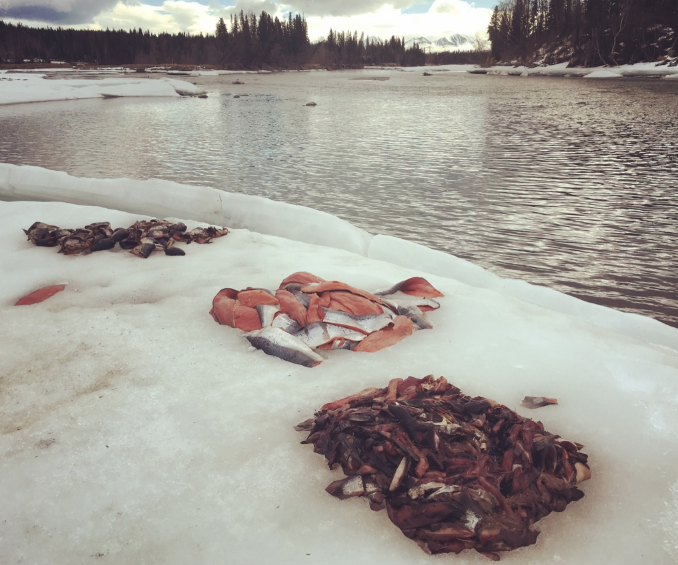By Eric Booton
I learned a memorable lesson while on an overnight camping trip with a group of friends during college. We camped next to a small and freshly stocked reservoir in a quiet, Colorado valley.
The fishing was easy and trout were on the menu. The following
morning was complete with consequence, not just from the empty beer box, but mostly from the handful of small trout left in aluminum foil near the fire. Caught, killed, cooked and unconsumed.
I was displeased with the previous night’s greed and quietly vowed to avoid repeating such a mistake. A recent fishing trip to the Kenai river started on a shocking note. The beauty of the sunny spring day came to a puzzling pause when we pulled up to the boat launch to assess the ice shelf and plan our approach for launching the boat off it. Our jaws dropped and we questioned our eyesight as we walked closer to confirm suspicions about what we were seeing. Dumped right in the middle of the boat launch were three relatively large piles of salmon fillets, smoked salmon, and salmon heads.
The Alaskan angler sometimes feels like a bit of a black sheep among the larger fly community. Harvesting fish, especially wild and native fish, ruffles feathers and attracts scrutiny from anglers from other regions of the nation. In the Last Frontier, one of the few places left in the world featuring strong runs of wild salmon, we are fortunate to be able to harvest an appropriate amount of wild salmon for the grill, smoker or freezer.
I’ve heard my share of overharvest and lack of consumption horror stories. People dumping truckloads of freezer-burned fish at the dump or the end of a road. Anglers filling their bag limit and letting the fish spoil or only recovering a pitiful amount of the meat when filleting their catch. You get the idea.
With salmon season on the horizon, fellow Alaskans, and other anglers who are gifted the opportunity to harvest some fish, let’s remind ourselves and others to learn from past mistakes, and only harvest what we will consume. If you find yourself in a position where you may not eat all the fish yourself, explore an avenue for donating the fish rather than quickly dumping it. There are lots of hungry mouths out there.
Freezers tend to fill, and on occasion stop working and spoil their contents. Smoking or canning fish are great methods of preserving your harvest, open up freezer space, and offer diversity in your consumption options.
I don’t know the story behind the piles of salmon we discovered at the boat launch that day. But I have to imagine there were steps that could have been taken to ensure those salmon did not go to waste. There are numerous methods for safeguarding our fisheries, and in Alaska it’s not just protecting our overwhelmingly pristine habitat, but also doing our small part by being conscious about our personal harvest.
Eric Booton is the sportsmen’s outreach coordinator for TU’s Alaska Program. He lives and works in Anchorage.



